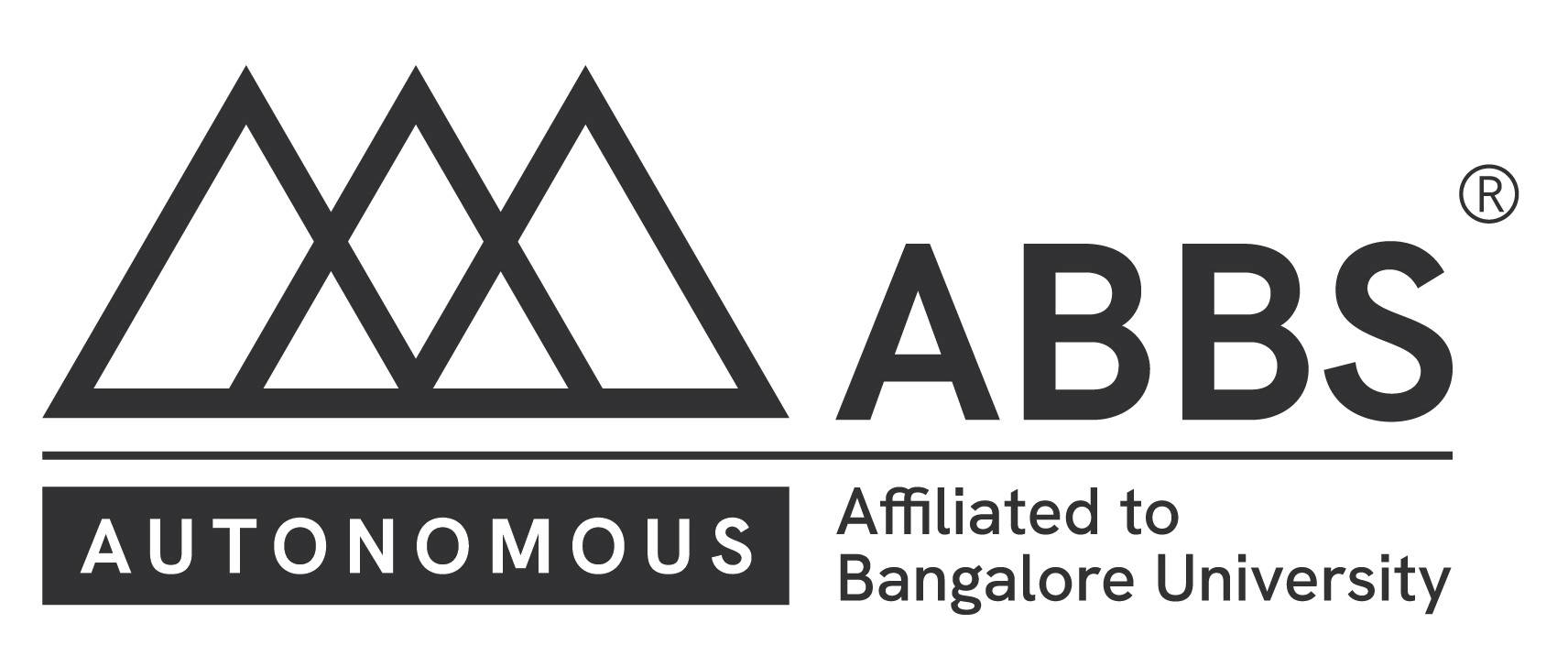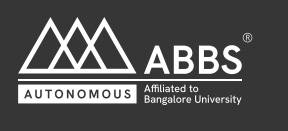Bachelor of Business Administration (BBA) – Business Analytics
Pedagogy
The BBA Business Analytics program at ABBS follows a student-centric, application-oriented pedagogy that combines foundational business knowledge with analytical thinking. The academic year begins with an orientation and bridge course to align students with the expectations of a data-driven business world. Emphasis is placed on experiential learning through case studies, simulation exercises, real-world projects, and industry collaboration.
Program Overview
BBA Business Analytics is an undergraduate degree that integrates core business management education with training in data analysis, statistical tools, and decision-making frameworks. Designed for the digital economy, this program prepares students to navigate and lead in industries increasingly shaped by data.
Students will gain practical knowledge in areas like data visualisation, predictive modelling, business intelligence, and the use of tools like Excel, R, Python, Tableau, and SQL. By combining business acumen with data skills, graduates will be equipped to support strategic decision-making across functions like marketing, finance, operations, and HR.
Eligibility
Any student who has passed PUC/10+2/Pre-University equivalent courses in Science, Arts or Commerce securing a minimum of 35% of marks is eligible.
Program Highlights
- Curriculum blending business fundamentals with analytics tools & techniques.
- Training in tools such as Excel, R, Python, Tableau, Power BI, and SQL.
- Industry-driven projects and internships focused on real-time data applications.
- Guest sessions and workshops by professionals in analytics and data science.
- Career mentoring and placement support for roles in analytics and consulting.
- Access to e-resources, MOOCs, and NPTEL courses for self-paced learning.
- Analytics-focused club activities to promote hands-on exploration and teamwork.
Career Opportunities
Graduates can pursue careers such as:
- Business Analyst
- Data Analyst
- Market Research Analyst
- Operations Analyst
- Financial Analyst
- BI Consultant
- Management Trainee – Analytics
Curriculum
The BBA Business Analytics curriculum is designed to bridge management principles with data analytics competencies. It provides interdisciplinary knowledge and analytical skills aligned with modern business needs.
Curriculum structure includes:
- DSC: Discipline-Specific Core
- DSE: Discipline-Specific Elective
- OE: Open Elective
- AECC: Ability Enhancement Compulsory Courses
- SEC: Skill Enhancement Courses
- SEE/CIE: Semester-End Exam and Continuous Internal Evaluation
(Includes L+T+P: Lecture + Tutorial + Practicals)
Note: Certification courses and industry-driven modules are offered alongside to enhance employability in the analytics domain.
Glimpse of Industrial

Hindustan Coca-Cola Ltd
ABBS students during an industrial visit to Hindustan Coca-Cola, gaining practical insights into the beverage industry and learning about large-scale operations.

Unibic Ltd
Business students from ABBS Bangalore explore manufacturing processes at Unibic Ltd.

Reserve Bank of India
ABBS Bangalore students visit the Reserve Bank of India to learn about central banking and finance.

L & T
ABBS Bangalore students explore industry operations at L&T Construction Equipment.

AKSHAYA PATRA
BBA students visit Akshaya Patra to understand large-scale food distribution and social impact.

Gone Mad Factory
ABBS Bangalore students visit the Gone Mad factory, gaining insights into snack production and brand operations.

TVS Motors LTD
ABBS Bangalore students explore automotive manufacturing and innovation at TVS Motors in Hosur.
Guest Lectures
Guest lecturers provide an important educational experience for students based on their real-world life experiences. Students get to see the insight and perspective of the guest lecturers’ specific field. The format can enable students to interact with professionals in formal and informal settings and break down the barriers of the classroom walls to deepen learning. The experience gives students the opportunity to connect with professionals and create meaningful learning connections.
The Department of Management organised a 5 day webinar on Banking and finance from 16-6-2021 to 20-6-2021 for the knowledge development of students. Reputed Banker Mr. Suresh Shetty delivered lectures on Banking operations and Functions, Retail Banking, Digital Banking, Banking Regulations. Over 100 students participated in the webinar which was successful.
Guest Lecture Programs were also organised by inviting industrial and professional experts from various fields for the benefit of students on 19.8.2022 Dr Semma Gupta HR Manages delivered a lecture on “Importance of monitoring in building self-branding”. Dr. Jayanthi delivered a lecture on “The impact of the covid 19 on HRM and the new normal of work”. On 21-02-22
Dr. Mohammed Farooq Pasha, trained students on “How to carry out and present CASE STUDY REPORT.
Guest Lecture on Case Study Analysis

ABBS Bangalore students gain insights on case study analysis from Dr. Mohammed Farooq during a guest lecture.
Guest Lecture on Information Technology for Business Growth Guest Speaker: DR. S CHANDRASEKAR

BBA students learn about leveraging Information Technology for business growth from Dr. S Chandrasekar.
BUSINESS LAB – B FOCUS
The Business Lab is a hub of creativity, collaboration, and innovation. It serves as a platform where theoretical knowledge meets real-world application. Through a series of carefully designed activities, workshops, and projects, we aim to bridge the gap between academia and industry.
Department of Management-UG, we take pride in fostering a dynamic learning environment that goes beyond traditional classrooms. Our Business Lab is a testament to our commitment to hands-on, experiential learning that prepares our students for the challenges of the ever-evolving business landscape.
Our Key Activities
- Case Studies and Analysis:
- Simulations and Role-Playing:
- Financial Planning and Budgeting:
- Marketing Plan Simulation:
- Innovation Challenges:




